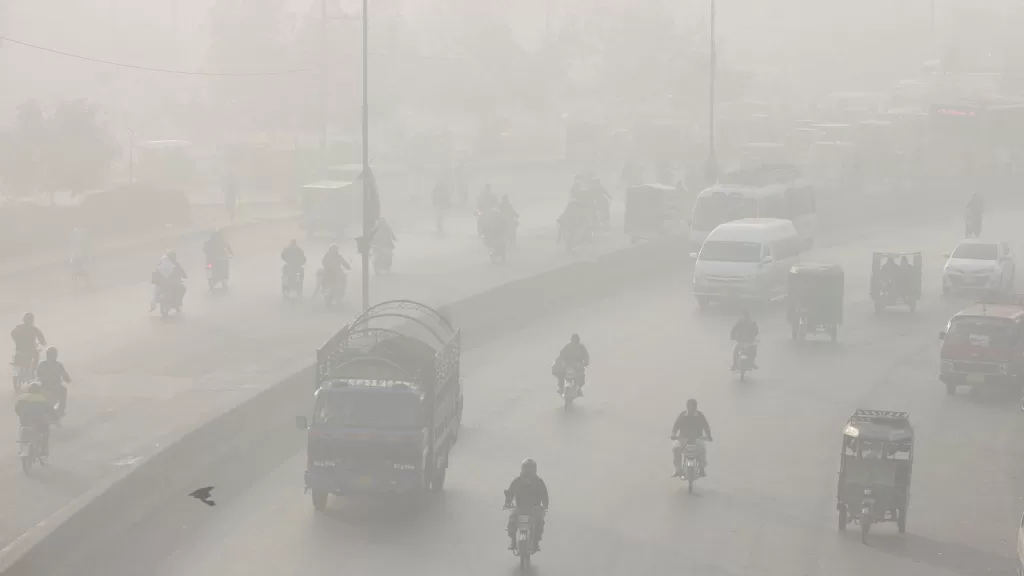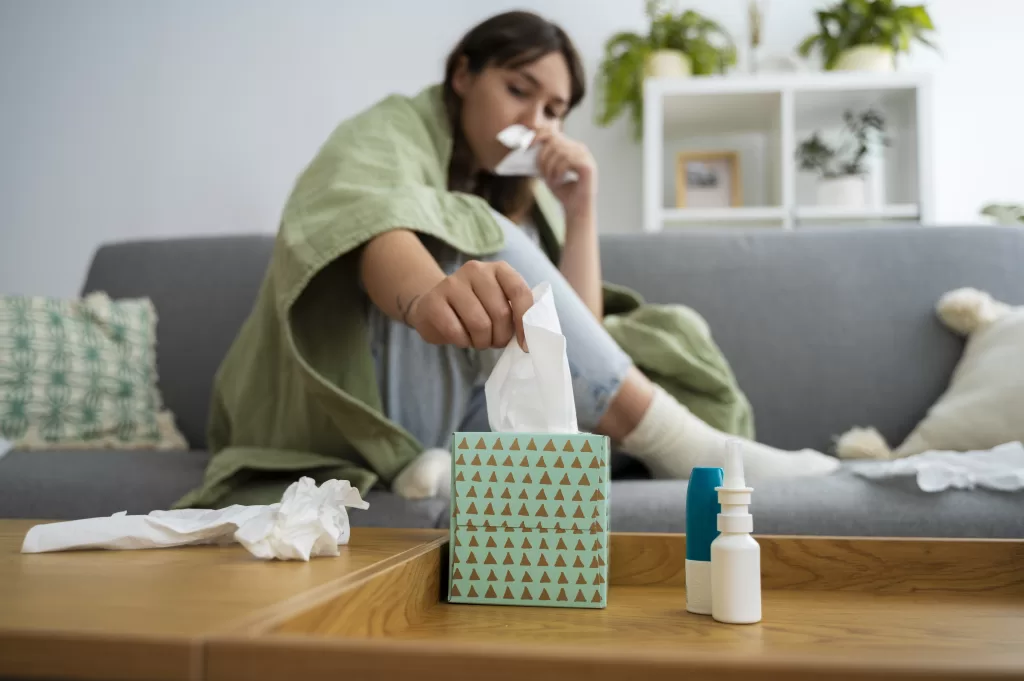Pakistan is once again faced with the yearly threat of smog, an unpleasant mixture of smoke and fog that permeates the atmosphere, as winter approaches. The rise in viral infections is a hidden threat that lurks behind the apparent cloud. Cold weather, stagnant air, and higher pollution levels all work together to produce an atmosphere that makes respiratory infections spread quickly. This article seeks to raise awareness of the health risks associated with infections brought on by pollution in Pakistan and offers helpful advice on how people may protect their health.

The spread of viruses, especially those that affect the respiratory system, such as influenza, bronchitis, and the common cold, is accelerated by smog. Airborne pollution and viruses combine to produce an ideal environment for the spread of these illnesses. The virus particles attach themselves to the minuscule pollutants, allowing them to remain in the atmosphere for extended durations and raising the possibility of inhalation.
At-Home Solutions:
Air Purifiers: Purchasing air purifiers with HEPA filters will greatly lower the amount of pollutants found inside. By reducing the chance of viral transmission, these gadgets aid in the creation of a safer sanctuary where people may hide from the outer pollution.
Humidifiers: Using humidifiers to keep interior humidity levels at ideal levels will help shield respiratory tract mucous membranes from drying out. By doing this, the body’s defences against viral infections are strengthened naturally.
Regular Ventilation: Although it may appear contradictory under smoggy circumstances, enabling regulated ventilation can aid in the replacement of interior air with outdoor air that is fresher. To guarantee the inflow of cleaner air, select periods such as early morning or late evening when pollution levels are relatively lower.
Precautionary Steps Outside
Wear Masks: When going outside, it’s imperative to wear masks, especially N95 respirators. By efficiently filtering out tiny particulate matter, these masks help protect users from breathing in dangerous pollutants and virus particles. The first line of protection against respiratory infections is to wear a mask.
Reduce outside Activities: Reducing outside activity can help lower exposure to contaminated air, particularly during hours of high smog. If you must go outside, pick green places away from busy streets to reduce the chance of breathing in dangerous contaminants. Smog can trigger or worsen allergies, and women may be more susceptible to allergic reactions. The presence of allergens in the air, combined with pollutants in smog, can lead to increased respiratory distress, sneezing, and other allergy-related symptoms in women.
Prompt Medical Intervention
Identify Symptoms: It’s important to be alert for the early signs of respiratory infections. The symptoms of a persistent cough, shortness of breath, fever, and exhaustion should alert people to seek medical attention as soon as possible.
Speak with a Doctor: It’s critical to get prompt medical attention if you become unwell. Viral infections can become more severe if medical intervention is delayed. Physicians can offer the right care and direction to help patients through the healing process.
Pregnancy Complications: Women who are expecting are more susceptible to the negative effects of pollution. There is evidence linking pregnant exposure to air pollution to unfavourable outcomes such as low birth weight, premature delivery, and developmental problems. Particulate matter and ozone, two contaminants found in smog, have the ability to pass through the placental barrier and affect the growing fetus’s health as well as the mother’s.
Developing Resistance
Balanced Diet: The body’s defences against viral infections are strengthened by a nutrient-rich diet rich in fruits, vegetables, and immune-boosting foods. It’s also essential to drink enough water to maintain general health.
Frequent Exercise: Exercise on a regular basis strengthens immunity and improves general wellbeing. Include activities that strengthen the respiratory system, including yoga or vigorous walking.

Awareness and Involvement in the Community
Community-based education activities are essential in increasing public knowledge of the health dangers linked to viral infections and pollution. People may be empowered to defend themselves and their communities by receiving knowledge on preventative measures and the value of early intervention.
Government Interventions: Policies designed to lessen air pollution should be put into place and upheld by government agencies. To reduce the environmental elements causing smog, this may involve investing in renewable energy sources, encouraging public transportation, and enforcing tougher emissions limits.
The spike in viral infections that Pakistan experiences during the pollution season highlights the critical need for preventative health measures. People may protect themselves from the combined threat of viral illnesses and pollution by focusing on strengthening immunity, using masks, adopting at-home remedies, and seeking prompt medical attention. Governmental initiatives together with community-based initiatives are essential to tackling the underlying causes of pollution and reducing the health hazards linked to this seasonal problem. By working together, we can clear the air and create a more salubrious winter climate in Pakistan.



















